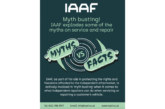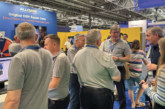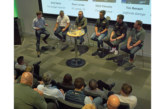
Skills and recruitment, as one, is one of the most important discussion points in the automotive industry at present. Ideas and campaigns have been thrust forward and created to improve the situation – IAAF CEO, Mark Field, has his say:
In case you hadn’t seen or heard, there’s a skills shortage in our trade. When the market talks about such issues, it’s all too easy to relate these to the technician end of the sector. Indeed, the past 20 years has seen a very visible focus from the aftermarket at working to technically upskill the market.
Now, that focus extends to new people coming into our trade – how do we attract new people, new ideas and fresh perspectives? New entrants, in the main, come in via the education setting and arrive at garage level, but the majority of people studying motor vehicle qualifications never set foot in our industry.
Rebel thinking
I read a very thought-provoking book from Matthew Syed recently – you may remember him from his podcast Flintoff, Savage and the Ping Pong Guy? In Matthew’s book, Rebel Ideas: The Power of Diverse Thinking, he talks about how we can reframe certain situations to bring about a better outcome, ultimately, by thinking differently, even radically.
Closer to home, the IAAF Aftermarket Career Pathway is an umbrella term we have used to reach out to schools, colleges and universities, something the federation has rarely done before. It has a prime aim, which is to highlight to young people that there are numerous options available to them throughout the supply chain.
In short, it endeavours to promote the entire automotive aftermarket to young people and highlight the fact that they can enjoy a long, varied career in numerous different businesses and settings.

In addressing the issues at one end, we recognise that we have a skills and recruitment shortage that affects both factors and suppliers.
Middle skills gap
The ‘middle skills gap’ is a real and present problem for our trade. There is not enough done to bring new people of all ages into our parts distribution trade, an area which IAAF is keen to address. Suppliers and manufacturers face similar issues.
The answer, I believe, is the same for all levels of the supply chain – just executed differently.
Reframing the opportunities
The opportunities in our trade need to be reframed; we need to think and act differently and onboard people in the correct way.
The automotive aftermarket is filled with examples of where businesses lead in terms of service, technical support, manufacturing, IT, marketing and supply chain logistics to name but six. The opportunities are plenty and varied.
For young people entering the sector, we have to outline a pathway for a future career. Their initial touch point into our sector from an education setting may need to change from that of a garage, to that of something more indicative of the industry they are set to become a part of.
For the middle skills gap, in particular motor factors and suppliers, we need to promote the aftermarket to other sectors. Industries, like rail, marine, electrical and agricultural, often mirror that of our own.
It’s not about looking like a good business; it’s about being a good business. The skills gap isn’t confined to a demographic, it applies to us all. We can all benefit from different perspectives and diverse thinking.
And what of our future? One of an alternative-fuelled vehicle parc and autonomous driving. The future of our sector is exciting, and the way we embrace it is through stepping out of our comfort zone and thinking differently – rebel ideas anyone?
What are your thoughts on this subject? Send your views to tom@pmfmag.co.uk







